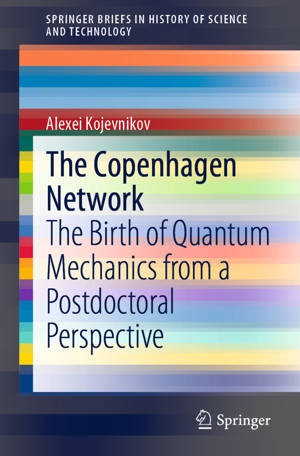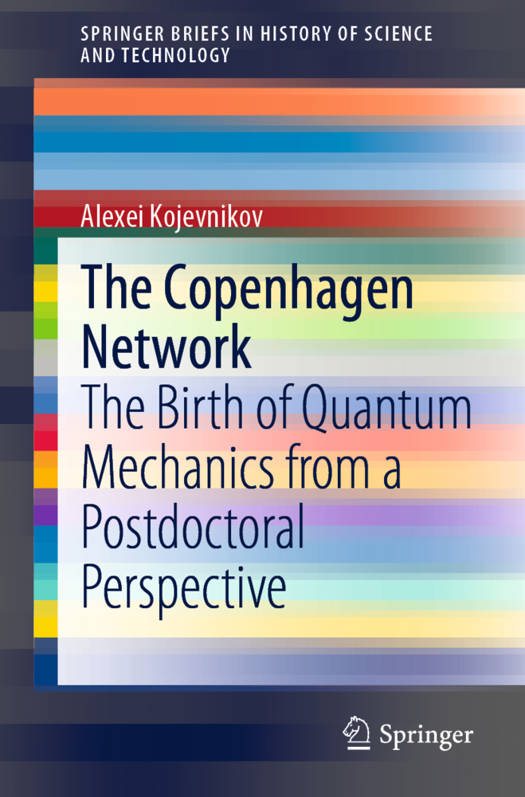
- Retrait gratuit dans votre magasin Club
- 7.000.000 titres dans notre catalogue
- Payer en toute sécurité
- Toujours un magasin près de chez vous
- Retrait gratuit dans votre magasin Club
- 7.000.0000 titres dans notre catalogue
- Payer en toute sécurité
- Toujours un magasin près de chez vous
The Copenhagen Network
The Birth of Quantum Mechanics from a Postdoctoral Perspective
Alexei Kojevnikov
91,95 €
+ 183 points
Description
This book is a historical analysis of the quantum mechanical revolution and the emergence of a new discipline from the perspective, not of a professor, but of a recent or actual Ph.D. student just embarking on an uncertain academic career in economically hard times. Quantum mechanics exploded on to the intellectual scene between 1925 and 1927, with more than 200 publications across the world, the majority of them authored by young scientists under the age of 30, graduate students or postdoctoral fellows. The resulting theory was a collective product that no single authority could claim, but it had a major geographical nod - the Copenhagen Institute of Theoretical Physics - where most of the informal, pre-published exchange of ideas occurred and where every participant of the new community aspired to visit. A rare combination of circumstances and resources - political, diplomatic, financial, and intellectual - allowed Niels Bohr to establish this "Mecca" of quantum theory outside of traditional and more powerful centres of science. Transitory international postdoctoral fellows, rather than established professors, developed a culture of research that became the source of major innovations in the field. Temporary assistantships, postdoctoral positions, and their equivalents were the chief mode of existence for young academics during the period of economic crisis and post-WWI international tensions. Insecure career trajectories and unpredictable moves through non-stable temporary positions contributed to their general outlook and interpretations of the emerging theory of quantum mechanics. This book is part of a four-volume collection addressing the beginnings of quantum physics research at the major European centres of Göttingen, Copenhagen, Berlin, and Munich; these works emerged from an expansive study on the quantum revolution as a major transformation of physical knowledge undertaken by the Max Planck Institute for the History of Science and the Fritz HaberInstitute (2006-2012). For more on this project, see the dedicated Feature Story, The Networks of Early Quantum Theory, at the Max Planck Institute for the History of Science, https: //www.mpiwg-berlin.mpg.de/feature-story/networks-early-quantum-theory
Spécifications
Parties prenantes
- Auteur(s) :
- Editeur:
Contenu
- Nombre de pages :
- 126
- Langue:
- Anglais
- Collection :
Caractéristiques
- EAN:
- 9783030591878
- Date de parution :
- 03-12-20
- Format:
- Livre broché
- Format numérique:
- Trade paperback (VS)
- Dimensions :
- 156 mm x 234 mm
- Poids :
- 204 g

Les avis
Nous publions uniquement les avis qui respectent les conditions requises. Consultez nos conditions pour les avis.






